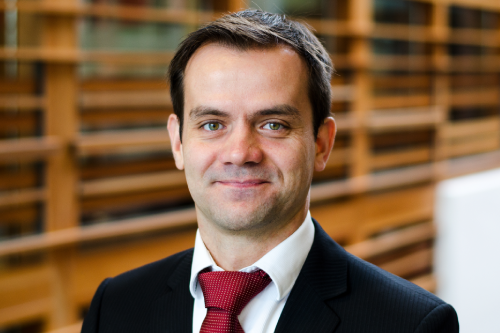‘You really have to address this cultural issue that we have equated excessive overwork with excellence’

One potential impact on the workplace, post-pandemic, may be a new way of looking at sick leave in a more “more mature” way, says one workplace academic.
“With the pandemic and increasing awareness of how illnesses spread, there will be a much stronger emphasis on it moving forward to try to avoid some of the negative consequences that it has had for employees, for organizations in the past,” says Matthias Spitzmuller, associate professor and distinguished professor of organizational behaviour at the Smith School of Business at Queen’s University in Kingston, Ont.
The concept of presenteeism, which Spitzmuller defines as “employees going to work, even though for physical or mental health reasons, they should not be present in their offices,” may soon evolve in light of what many of us have experienced since March 2020, he says.
“What has happened in the last year is that people realize that suddenly there was no flu season and why was there no flu season? Well, people were wearing masks but most importantly, the contagion that happened at work, in schools, in daycare facilities just didn’t take place. For many parents like myself, this was a tremendous relief: it was the first year in which my son didn’t have ear infections and required multiple bouts of antibiotics in the winter.”
In professional services firms in the past, says Spitzmuller, working through illness has been not only encouraged but even commemorated.
“If you’re reading for example, Goldman Sachs: The Culture Of Success… they celebrate the presence of Aspirins on pretty much every desk in the office because it’s so deeply ingrained in the firm culture.”
For those types of business, it was a badge of honour to show that nothing can stop an employee from working and for them, it might be hard or even impossible to change, he says.
“The organizations that I expect to push back are those organizations that for a long time have developed a culture that equates excessive overwork, presence in the office, and the attitude of working to a mental breakdown, with excellence. Those are the organizations where that culture is so deeply rooted in that belief that physical strength and endurance are essential for success; they will find it hard to change that because it’s really part of their DNA.”
Especially once more businesses reopen and the economy begins booming again, external pressures may compel some of those businesses to return to their old, harmful habits, he says.
“Give it a year and you’ll see many of those reverting to similar practices because we are going to enter a phase of economic growth following the downturn of the recession; there will be a lot of work, there might be a scarcity of qualified employees filling certain positions and suddenly you have similar pressures to work the long hours, to ignore your illnesses and to just battle through and that’s where the problem comes from.”

Matthias Spitzmuller
But for those organizations that recognize the potential costs of presenteeism, change must take place at the core levels of the company, says Spitzmuller.
“It’s not just that you provide guidelines that employees should stay at home and that you communicate this in a memo to all employees, that’s a good start. But you have to go deeper, you really have to address this cultural issue that we have equated excessive overwork with excellence. This is really what organizations have to do to break that cycle.”
Academic challenges
Many organizations have created a culture that promotes presenteeism, says Spitzmuller.
At the Smith School of Business, incoming MBA students participated in an “extensive teambuilding exercise” that kept them awake for 36 straight hours. Students viewed the experience as “transformational,” says Spitzmuller “but the problem is that we’re telling them regardless of how your body feels, battle through the pain and this is precisely not the types of values and behaviours that employees should learn or students should learn as they enter a new organization or university.”
“Those practices have since been discontinued and now include more psychological safety mechanisms,” according to Spitzmuller.
The school now mandates “off-days where students have no classes or deadlines to recharge,” he says. “The school has also invested in high quality remote synchronous learning when students cannot attend class in-person, created the position of director of health and wellness as part of the student executive committee, and invested in mental health counselling resources.”
However, on the positive side, students today are allowed to “self-declare” that they are sick and cannot attend exams, which has made a big difference, says Spitzmuller.
“Many students have shared that this is such a relief that you don’t have to be in the emergency room for four hours just because you need a sick note that you cannot attend an exam. It also transfers responsibility and accountability to students that they have to take care of their own mental health and physical health.”
Leaders need to step up
To effect change, leaders must provide good role models for the entire organization, says Spitzmuller.
“If you’ve got a manager who says, ‘I am not feeling well, can employee X or Y take my place?’ And if this becomes normalized and if employees realize that you don’t have to battle through an illness, but you take your sick days, this would go a long way to promote the behavioural change that starts at the top of the organization.”
And for HR, it’s important they begin by “illustrating the costs of presenteeism at work and communicating this to employees,” he says.
Even thought it might be hard to fully quantify the costs, “If you compare for example, the levels of sickness during the pandemic and in the year before, and if you translate this into hours worked, and the costs associated with that, trying to communicate the economic impact of presenteeism is a first key role,” says Spitzmuller.
“[It’s about] breaking the cycle in which organizations have created this dysfunctional culture that equates excessive overwork with excellence, and how that is really the root cause of presenteeism. If we want to move past that, we have to move beyond just guidelines, and communicating that it really requires a deep-rooted cultural change.”
Many workers are looking to a more relaxed dress code for the future, while a staggered return to the workplace might be key consideration for HR.




